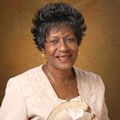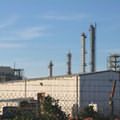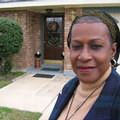|
在美國路易斯安那州南方的諾柯市,有一個「老金鑽」社區,它座落在殼牌化學工廠以及另一間殼牌合資企業所經營的煉油廠之間。今年62歲的瑪姬•理查,她從小生長在這化學工廠籬笆外僅25步路之遙的地方,她說:「我們就像是三明治中的夾心肉餅一樣」。這個社區的居民絕大多數是黑人,數十年來,這1,500多名社區居民出現癌症、畸形兒以及呼吸道相關疾病的比例,比尋常值高出許多。他們甚至在夜裡也提心吊膽、無法成眠,擔心工安事故會隨時上演。1973年,當地的輸油管線曾經發生爆炸,老金鑽鎮上有一名婦人與少年因而遇害。

瑪姬•理查。(照片提供:環保金人獎主辦單位)
理查太太是諾科市「關心市民組織」的領袖,這個民間組織一直在為老金鑽社區的居民爭取公平的遷移計畫。理查太太與該組織中的伙伴不斷與殼牌石油協商,卻不幸在法庭中落敗,但他們為了戰勝石油公司,甚至組成了「人龍陣線」一同測試諾科市的空氣品質。
2002年,在經過13年的努力之後,該組織跟殼牌達成徹底遷村的協議。從那時候起,殼牌石油以每一塊地至少8000元美金的價格,買下鄰近255塊地中的200塊地,而大多數的居民也選擇遷移至鄰近的城鎮。
理察現在的工作,就是協助位在美國境內以及其他國家的這類社區,為他們提供可行的建議。2004年4月19日,她在加州舊金山獲頒環保金人獎。以下是她接受舊金山Grist雜誌的採訪內容。 |
The Old Diamond neighborhood of Norco, in far southern Louisiana, sits
between a Shell Chemicals plant and an oil refinery owned by a Shell
joint venture. "We're like the meat in the sandwich," says Margie
Eugene-Richard, 62, who grew up just 25 feet from the fenceline of the
chemical plant. For decades, the 1,500 residents of this predominantly
black neighborhood suffered unusually high rates of cancer, birth
defects, and respiratory diseases. They didn't sleep well, either --
they lived in fear of a major industrial accident, like the 1973
pipeline explosion that killed an Old Diamond woman and a teenage boy.

Eugene-Richard.(Photo: Goldman Environmental Prize)
Eugene-Richard is the leader of Concerned Citizens of Norco, a
citizens' group that has fought for fair resettlement of Old Diamond
residents. Eugene-Richard and other group members negotiated with Shell,
unsuccessfully battled the company in court, and even organized citizen
"bucket brigades" to test the air in Norco.
In 2002, after some 13 years of work, the group reached a full
relocation agreement with Shell. Since then, the company has bought 200
of the 225 lots in the neighborhood for at least $80,000 per lot, and
most residents have chosen to move to nearby towns.
Eugene-Richard now advises other "fenceline" communities in the
United States and abroad. On April 19, she was awarded one of the 2004
Goldman Environmental Prizes in San Francisco, Calif. She spoke to Grist
from San Francisco. |
|
問:殼牌工廠以及摩提瓦煉油廠是如何影響您的家人以及鄰近的居民們? 答:1950年代,這個煉油廠曾經延伸至老金鑽社區的前院。它馬上變成全鎮居民抱怨的對象,因為它每天運作時所產生的噪音、火焰和異味,嚴重影響到城鎮的居民。鎮上的老人家開始不斷咳嗽,有些罹患呼吸道疾病。我的妹妹在幼年就死於一種很罕見的細菌病變。我們經常看到那黑黑的煤灰落在我們家的草地上。
所以在當時,我們所到之處,無不充斥著地方居民的怨言,後來我就說:「我們不要只是在彼此之間發牢騷,我們要讓外界知道這件事」。
問:是什麼事件促使您對殼牌石油展開抗爭?
答:當時實在是發生了不少的事故。首先在1973年,有一條輸油管線著火,導致一戶人家遇害。那時,我剛從學校畢業,並在我家鄉教書。那次爆炸,造成了許多傷害和恐慌,而恐懼也接踵而來。鎮上有些長輩開始組織起來,但是所有的努力到頭來卻無疾而終。而後在1988年,煉油廠又發生了另一次爆炸,這次事件再一次震驚了整個城鎮。這一次,整個社區凝聚了起來,鎮上的老人家們推舉我出來當領導者。當時我覺得這是上帝的旨意,我知道我必須站出來做點事情。

瑪姬─理查所生長的地方,距離殼牌工廠在僅僅只有25步路遠(攝影:Jim Iocona)。
問:殼牌是否帶給這個社區就業機會?如果有,會不會對抗爭活動產生阻力?
答:確實是有很多白人在殼牌工作,但是黑人就不太多了。在諾科市「關心市民組織」成立的時候,我的大女兒當時正為殼牌石油工作,她是化學和微生物學家。我當時有點害怕,我怕我會因此傷害到我女兒。但是我女兒卻告訴我:「我知道你絕不會作錯事」,所以我隨即低頭禱告並著手進行,我知道我這樣做是對的,這個活動不僅是對整個社區好,對石油產業也好,因為我們雙方還是需要彼此的。當然在我的內心深處,我仍然擔心是不是有人會因為我的緣故而傷害她,但是我不能讓這些疑懼讓我停滯不前。
問:您覺得最有效的策略是什麼?
答:以真心誠意的方式,實際面對面與社區居民、政府機關與產業界人士溝通。因為這一切要有所改善,必須從政府,民眾與工業界一同做起。目前國內有空氣污染防制法、水污染防制法、民權法案,以及產業界所簽署的睦鄰政策。我的想法是,上述法條早就已經白紙黑字地寫在法律典籍上了,既然政府立了這些法,就應該要有人為此負起責任。我們的組織固然很強勢,但是我們向來都是就事論事,我們不相信暴力,我們只相信有目的的談判與溝通。
我們認為,那些工業界人士也許不知道我們有多痛苦,或許需要有人去告訴他們這些事實。當我們的聲音在地方層次遭到漠視時,我哭喊著,我一定要讓我們的聲音上達更高的層次,從我們的前院帶向全世界。當我到荷蘭(與殼牌的高層人員展開折衝),我祈禱著:「上帝啊,不要再讓我無功而返」。在我後面不斷支持我的,是諾科市「關心市民組織」的伙伴們,在那一陣子,她們有好幾次徹夜祈禱著。

瑪姬-理查在新家前面的照片。(攝影:Jim Iocona)
問:在2002年的協議中,殼牌石油對於整個社區有重新安置的計畫。請問您現在住在何處呢?
答:我現在居住於洛杉磯的Destrehan,離諾科市不遠。大部分人都搬到附近半小時到15分鐘車程的地方。他們仍然上原來的教堂,彼此依然有著緊密的聯繫,畢竟很難將居民與他們的歷史根源撕裂。我常會回家在我的舊庭院撿核桃,當我去河堤走走時,我會帶著我的孫子一起去。這樣的遷村協議相當好,不管怎樣,大多數人對他們的新家仍然滿懷喜悅。
問:在諾科市的案例中,還有哪些需要繼續努力的嗎?
答:我們正在計畫興建一幢多功能大廈,希望能提供更多教育功能以及職場訓練。我們同時也需要某些種類的診所,讓那些有慢性病患的患者有就診的地方。
問:您認為就整個環境保護運動而言,該如何處理並表達環境正義以及環境種族主義的議題?
答:當環境運動中的主流社群協助草根性的環境正義組織建立彼此之間的網路時,他們同時也建立了彼此合作與瞭解的習慣。當他們彼此在自己的岡位努力,讓環境保護的規則能徹底被執行並遵守,他們就是在推動環境正義。
問:獲頒這個獎項,對您來說有什麼意義呢?
答:這對我來說,可以說是美夢成真。我遇到了來自南美洲、非洲的朋友,他們也為了同樣的目標共同奮鬥,這個獎項對我來說真是意義重大。
問:您將怎樣運用這些錢呢?
答:我已經籌劃好一神學學校,我簡直等不及要去那兒開始我的工作。我們會照顧每一個需要愛的孩子,也會教導出聰明乖巧的孩子,並希望他們能建造出對環境較為友善的工業設施。我們將從諾科市做起,接下來是德州,或許也有可能是非洲。誰知道呢? |
Grist: How were your family and neighbors affected by the Shell plant
and the Motiva refinery? Eugene-Richard:
In the 1950s, there was an extension of the refinery right into
the front yard of Old Diamond. It became a nuisance because of the
noise, flares, and odors -- the daily operations affected the people in
town. The elder people were always coughing, and some had respiratory
diseases. My sister died at a very early age from a rare bacterial
disease. We were constantly faced with black soot falling on the grass,
on our houses.
So there were a lot of complaints everywhere you went, and finally I
said, "We're not getting anywhere talking among ourselves. We have to
make this known."
Grist: What inspired you to begin your battle with Shell?
Eugene-Richard: There were quite a few
incidents. In 1973, a pipeline ignited and caused a family to be killed.
At that time I had finished college and was teaching in my hometown.
That explosion caused a lot of hurt and panic, and caused fear to set
in. Some of the elderly people became organized, but that effort died
out. In 1988, another explosion [at the refinery] rocked the whole town.
This is when the community got together, and the elderly people elected
me as a leader. I felt the call from the divine ruler, from God himself
-- I knew I had to do something.

Eugene-Richard grew up in a house 25 feet from this
Shell Chemicals plant. (Photo: Jim Iocona)
Grist: Did Shell provide jobs to the community -- and if so, did
that make people reluctant to criticize the company?
Eugene-Richard: Many of the whites were
employed by Shell, but not many blacks. My oldest daughter was a chemist
and microbiologist for Shell at the time [that Concerned Citizens of
Norco was organized]. I had some fear; I thought that some harm could
come to my daughter because of me. But she said, "I know your heart is
not in it for the wrong reasons." So I said my prayers and pressed on. I
knew it was for good, not just for the town but for the industry --
because we all need each other. Still, deep within I wonder if someone
will try to do some injustice to her because of me. But I can't let fear
hold me back.
Grist: What did you find was the most effective strategy?
Eugene-Richard: Communicating without
hostility -- communicating with truth, coming face to face with
community people, government, and industrial people. The changes needed
to come from within the government, the people, and the industry. We had
the Clean Air Act, the Clean Water Act, the Civil Rights Act, and the
Good Neighbor Policy that had been written by the industry. My plea was
that we had all this written on paper -- there had to be some
accountability for following what was already written. We had a strong
organization, a group that dealt with facts. We didn't believe in
violence, we believed in negotiation with a purpose.
We thought that maybe the industry didn't know how much we were
hurting and suffering -- maybe they needed to be told. When we weren't
heard on the local level, I cried out that I would take this to a higher
level, from our front yard to the world. When I went to Holland [to
confront Shell officials], my prayer was, "God, please don't let me go
in vain." There were people behind me, the Concerned Citizens of Norco,
and there were times that we prayed all night.

Eugene-Richard in front of her new home. (Photo: Jim
Iocona)
Grist: Your 2002 agreement with Shell provided for relocation of
your entire neighborhood. Where do you live now?
Eugene-Richard: I live now in Destrehan,
La., very close to Norco.
Most people who have moved away live half an hour or 15 minutes away.
They still attend the same church, still have close contact with each
other -- it's very difficult to tear yourself away from your historical
roots. I go back and pick pecans in my old yard, and when I go walking
on the levee I bring my grandkids. The agreement is very good, however
-- most people are pleased with their new homes.
Grist: What remains to be done in Norco?
Eugene-Richard: We're planning a
multipurpose building for more education and job training. There's also
a need for some sort of clinic for people who are suffering from chronic
effects.
Grist: How do you think the environmental movement as a whole can
better address environmental justice and environmental racism issues?
Eugene-Richard: When the mass
environmental community helps [grassroots environmental justice groups]
to network, they build collaborations and a tide of understanding. When
they do their part to push for enforcement and compliance, they promote
environmental justice.
Grist: What does this award mean to you?
Eugene-Richard: It's like a dream come true. I've met people who have
common struggles, from South America, from Africa -- this award means
everything.
Grist: What will you do with the money?
Eugene-Richard: I have completed
theology school, and I can't wait to get started with my ministry. We're
going to minister to every child who needs love, and we're going to
create good, smart kids who can build cleaner industrial facilities.
We'll start in Norco -- next, Texas, maybe Africa. Who knows? |
